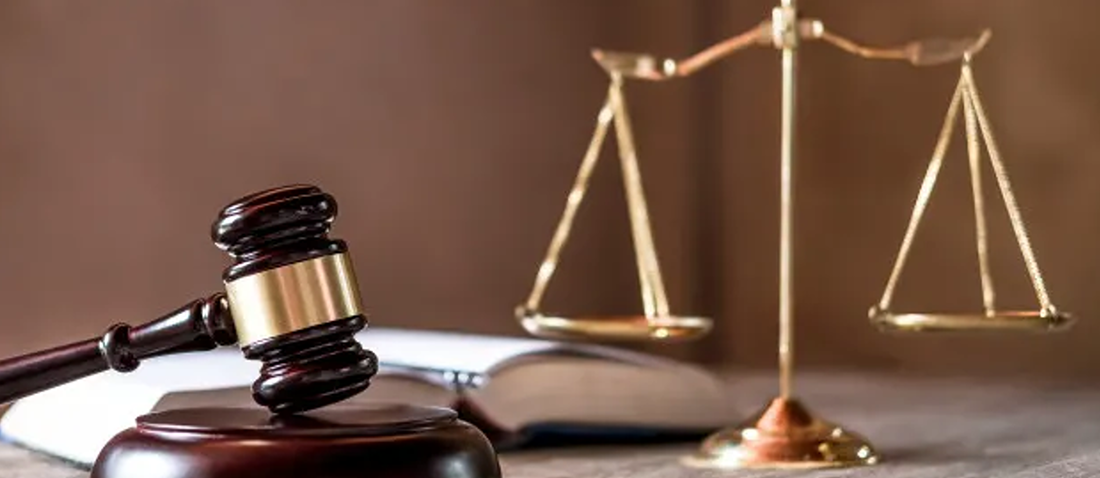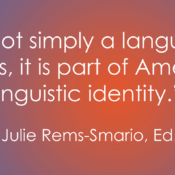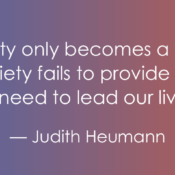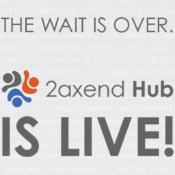
Closing the Gap — Legal Systems and Equal Access for Deaf Communities
Let’s discuss something that gets overlooked too often: the legal system. Courtrooms, HR investigations, employment disputes—no matter the domain, access for Deaf, DeafBlind, and hard of hearing individuals is a critically overlooked issue.
A Legal Landscape Still Missing the Mark
Despite the Americans with Disabilities Act (ADA), recent developments signal a troubling trend toward less-stringent enforcement and compliance. In March 2025, The Department of Justice (DOJ) removed 11 ADA guidance documents. While the law itself is unchanged, this action creates a void in clear, practical instructions for businesses and public entities on how to meet their accessibility-related obligations. It subtly shifts the burden of proof and understanding from the institutions to the individuals that are intended to be protected by the very law in question.
Meanwhile, a nationwide shortage of qualified legal interpreters exacerbates the problem. In California, a $6.8 million pilot program, the California Court Interpreter Workforce Pilot Program, aims to grow the pool of credentialed court interpreters. It’s a necessary stopgap, but only a partial solution.
Alternatively, Wisconsin is considering legislation, specifically Senate Bill 295 (SB 295) and Assembly Bill 292, that would allow courts to use artificial intelligence or machine-assisted translation tools for interpretation in legal proceedings, including trials and civil matters, to address interpreter shortages and high costs. With respect to sign language interpretation, sign language AI interpretation models use computer vision and machine learning to express American Sign Language (ASL) and recognize ASL signs in order to translate them into text or synthesized speech. However, they lack the accuracy, nuance, and contextual understanding required for complex legal proceedings, making qualified human interpreters indispensable.
Across the board, the deck is still stacked against a truly equitable legal landscape and reinforces a troubling pattern, especially as many Deaf, DeafBlind, and hard of hearing litigants and professionals cannot rely on timely or qualified interpreter support. While the letter of the law may remain, the practical and meaningful access it's meant to provide is being eroded.
How Legal Inaccessibility Ripples Out
When legal systems fail us, it's not an isolated problem. It spills into healthcare, education, employment, and can have real-world consequences.
A misinterpreted deposition can derail an anti-discrimination lawsuit, leaving a Deaf, DeafBlind, and hard of hearing individual with no legal recourse. The absence of a qualified team of interpreters could make it impossible for a Deaf, DeafBlind, or hard of hearing person to understand the proceedings or participate in their own defense. Furthermore, a misinterpreted confession or a key piece of testimony could lead to a wrongful conviction.
A powerful real-life example is the case of Ricardo Harris, a Black Deaf man. Harris's advocates argue his conviction was a direct result of a breakdown in due process. During his arrest and trial, he was denied a qualified sign language interpreter for police interrogations and for communication with his own defense attorney. Without a qualified interpreter, Harris was unable to understand the charges, participate in his defense, or accurately convey his side of the story. The ACLU, in a class-action lawsuit filed on behalf of Harris and other incarcerated Deaf individuals in Georgia, has claimed that the lack of effective communication at every stage of the legal process was a critical factor in his wrongful conviction.
There's also the case of Selene Alverio, a deaf woman in New Mexico who filed a complaint seeking a protection order from her ex-boyfriend. However, she was unable to participate in the hearing as the court did not provide an interpreter. The judge reportedly called her an "obstructionist" and accused her of being dishonest about her ability to understand. Consequently, Alverio was not granted the legal protection she sought. Following this incident, the ACLU of New Mexico filed a discrimination complaint with the U.S. Department of Justice on her behalf.
The failure to provide a qualified interpreter isn't just a procedural error; it's a systemic issue that impacts everyone in the courtroom. When qualified interpreters aren't available, legal proceedings can be slowed down, potentially leading to delays, mistrials, or appeals that waste court resources and taxpayer money. The high costs associated with these delays make investing in interpreters a matter of fiscal responsibility and due process.
This fundamental breakdown in due process can also have devastating, life-altering consequences for Deaf, DeafBlind, and hard of hearing individuals, amplifying trauma and reducing trust in the legal system. And while the ADA might say access is a right, countless individuals find their rights enforced only when they escalate to litigation, underscoring the urgent need for systemic change.
Interpreters Are Key Part of the Solution
Here’s the bright spot: interpreting partnerships can shift outcomes. But only if they're done right—not just reactive, but strategic.
We need to increase the number of interpreters trained to provide interpretation in a variety of legal settings, supported by structured training, contextual prep, and institutional accountability.
At 2axend, we’re continuously looking beyond awareness to what inclusion actually means: citizenship, agency, equal rights. Legal access isn’t just a checkbox. It’s the foundation of civic participation—access to justice, due process, and healthcare, educational and workplace equity.
At the end of the day, it's not enough to simply have an interpreter present. Meaningful access to due process requires a qualified interpreter who understands legal nuances and can convey them accurately, ensuring that a person's rights are truly protected.
That’s what the Legal Interpreting Summit taking place next month addresses. We’re gathering interpreters and Deaf and hard of hearing professionals to co-create standards and systems for interpreting in legal realms—with expertise and intention.
Everyone wins when legal access is a foundation, not a footnote.
Final Thoughts
Trying to access court services when your interpreter isn’t qualified—or worse, isn’t there—isn't just an inconvenience. It forces individuals to become their own legal advocates, and it places an immense financial and emotional burden on people who are already in vulnerable situations. That’s why we need systemic change now.
Ultimately, when the legal system respects communication rights, healthcare providers, employers, and educators start to knock down adjacent barriers too.
Join us at the Legal Interpreting Summit next month. Let’s take a big step in redefining what equals justice for the Deaf community—together.



